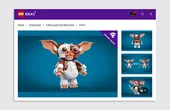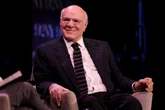When you think of podcasting, you probably picture chart-topping celebrities and shows from major publishers—names like The Joe Rogan Experience, Armchair Expert, Call Her Daddy, MeidasTouch, and others. But here’s the reality: It’s the smaller, independent creators who dominate the podcast world.
The vast majority of the approximately 435,000 actively publishing podcasts are independents—creators operating outside the umbrella of major media companies—and they play a huge role in the industry’s ability to maintain its freshness and authenticity.
They’re also important to strengthening the financial foundation of the entire podcasting market. That’s because, for the advertisers that drive podcasting’s growth, indies are not just plentiful—they’re powerful. Their hosts excel in fostering loyal, highly engaged communities built on trust and direct connection. In an era when consumers crave authenticity and can be wary of larger media companies, indie podcasters offer a unique bridge between brands and audiences. Because of this, they’ve become essential partners in any serious audio strategy.
The medium’s recent shift to video threatens to undermine all of that. Not only are the additional demands of video production potentially a larger burden to independents, but if podcast advertisers shift their budgets to video, they risk defunding indie podcasts that aren’t moving in that direction. Without funding from ads, many indie podcasts will suffer, hurting the entire market in the process.
Why indies matter
It’s important to remember that independence is central to the culture of podcasting. The idea has always been that podcasting had a low barrier to entry, meaning that anyone with a point of view could start one. This not only resulted in a huge range of podcasts covering a variety of niche subjects—allowing listeners to curate according to their own interests—but also a built-in authenticity, creating a deep connection between creators and listeners.
This intimate relationship, still enjoyed by independent podcasts, has always delivered value for advertisers. Our research shows that not only do indie podcasts feature more and longer host-read ads—podcasting’s most effective advertising format—but they’re 37% more likely to hit their performance targets when compared with those on larger network podcasts. And indies tend to offer more creative options, and their ads are about 50% more likely to continue to deliver advertisers’ impressions for months, or even indefinitely, after the initial insertion.
By comparison, podcasts from major media companies face bureaucracy that can slow down creative decision-making and lead to safer, less innovative content. They also operate under brand safety mandates and scale requirements that can restrict experimentation. Infrastructural and perception barriers limit the agility and authenticity that independent podcasters exercise freely, rapidly adapting content, collaborating personally with advertisers, and taking creative risks that resonate deeply with engaged niche audiences.
The right balance
Yes, independent podcasters may have smaller, niche audiences, limiting the broad reach needed for large-scale awareness campaigns. And they may lack business infrastructure and legal expertise, complicating outreach, contracts, media and analytics operations, or compliance. That’s why it’s important for podcasting media plans to include a mix of major and independent titles in order to earn the benefits (and offset the weaknesses) of both.
Instead, many advertisers are forfeiting potential earnings by allowing indies to get left behind; podcast advertising revenue continues to concentrate among top-ranked shows, with the top 500 receiving nearly half of all ad spend. And as podcasting shifts to video, that imbalance may get worse.
Brands know that major podcast networks bring scale, consistency, and reach. It’s often an easily executed media buy. But a good media plan requires balance, especially if the goal is to preserve the independent spirit that has made podcasting such a powerful medium. Both in ROI and cultural impact, indie podcasts are worth protecting, and brands must invest accordingly.










No comments